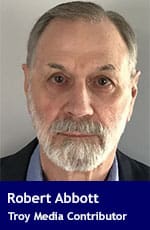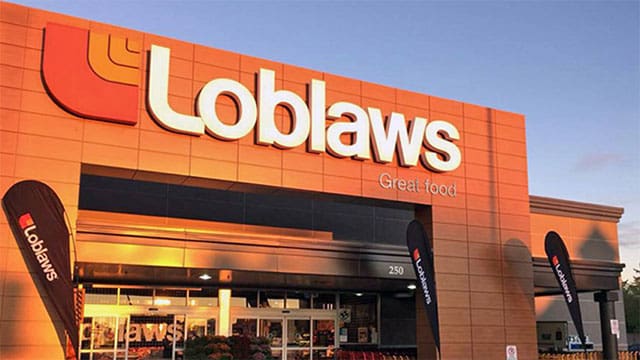Boycotting Loblaw will impact your retirement funds
 It is May 2024 and some shoppers are boycotting Loblaw Companies Limited and Loblaws stores.
It is May 2024 and some shoppers are boycotting Loblaw Companies Limited and Loblaws stores.
Boycotting this chain is an understandable but interesting choice. Loblaws is the largest and most visible grocery chain, which makes it easy to understand as a target. It is also an interesting choice because it is the only chain owned by almost every Canadian adult.
Collectively, we all own a modest slice of Loblaw and thousands of other corporations through our pension funds, mutual funds, ETFs, and even some hedge funds. I refer to them as retirement funds since that’s their main purpose.
For Canadians outside Quebec, ownership of grocery businesses and other corporations began when the Canada Pension Plan (CPP) and Canada Pension Plan Investment Board (CPPIB) began investing in stocks on Jan. 2, 1999. Residents of Quebec own Loblaw shares through a different plan, managed by the Caisse de dépôt et placement du Québec.
 |
| Related Stories |
| Selectively targeting Loblaw undermines boycott’s credibility
|
| Loblaw stock price is surging, but consumer complaints are piling up
|
| Food insecurity in Canada at a crisis stage
|
Among the CPP’s assets, held on our behalf, are 420,000 shares in Loblaw Companies, as of Mar. 31, 2023 (a new list of holdings should be available soon). That means we collect dividends from Canada’s largest grocery chain four times a year and also share in capital gains, which occur when the share price goes up.
Assuming we held those 420,000 shares from Apr. 1, 2023, to Mar. 31, 2024, we would have received four dividend payments of $0.45 each for a total of $1.80 per share. Multiplying that by 420,000 tells us we received $756,000 in dividends over the past year.
Turning to capital gains, the Loblaw share price increased from $123.83 on Apr. 1, 2023, to $151.10 on Mar. 31, 2024. That’s a gain of $27.27, or 22 percent. Going a step further, we multiply $27.27 by 420,000 shares and discover our capital gain was $11,453,400.
Putting together the dividends and capital gains, we CPP participants received $12,209,400 in total through the CPP and CPPIB. That’s a benefit of more than $12 million flowing into the retirement funds of almost every Canadian adult.
Many, but not all, Canadians also own Loblaw through thousands of other retirement funds available here and in other countries.
So, we all share in Loblaw’s profits. Add to that our ownership of Walmart and the big American grocery chain Kroger, again through the CPP. For those who consider Coca-Cola and Budweiser grocery products, we own them too, through the CPP. Of course, we share in their profits, receiving dividends and capital gains.
And the grocery business is just a small part of what we own through our retirement funds. We also own stakes in other retailers, railroads, banks, and just about every other important segment of the economy.
We also own slices of major corporations in the United States and dozens of other countries. Our retirement funds invest in publicly traded companies everywhere their managers believe they can find the right balance of risks and rewards.
Through these funds, we also own stakes in private companies, those that do not trade on stock markets. Then there are real estate investments, which are often in a class of their own.
Our investment managers also invest large amounts of our cash, or capital, in bonds, which are loans to corporations and governments, with fixed returns. This type of investment is very stable because the returns are fixed and the risks are low.
To be clear, this is our money that the CPP and other funds are investing. All these funds manage our money on our behalf. We contribute through our employers, mutual fund companies, or financial advisors. Eventually the returns flow back to us.
Getting back to the boycott, I understand and share the frustrations of consumers; my family is affected, too. For many of us, it’s not just the higher prices. It’s also feeling a loss of control, and boycotts are one way to try to regain it.
Boycott if you will, but remember that our world is more complicated than it used to be. When it comes to big corporations like Loblaw, we’re not only consumers but also owners.
Robert F. Abbott is a freelance writer who has analyzed more than 1,000 corporations for online investment sites.
For interview requests, click here.
The opinions expressed by our columnists and contributors are theirs alone and do not inherently or expressly reflect the views of our publication.
© Troy Media
Troy Media is an editorial content provider to media outlets and its own hosted community news outlets across Canada.


